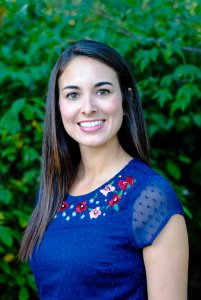Fair Warning: Kicking things off with a Fellow SLP Brag
When a person creates something noteworthy, recognition for their accomplishments and contributions should be celebrated and shared. Leigh Ann Porter, creator and producer of the Speech Uncensored Podcast, is in the middle of rolling out season three of interviews on topics pertinent to the field of speech language pathology. Her stellar interviewing skills and in-depth discussions with professionals in and related to our field make each episode an educational listen. Don’t waste any time; check out the excellent content she has waiting for you!
I met Leigh Ann last year and quickly familiarized myself with her podcast. Naturally, I was thrilled when she invited me to be a guest. During our March episode, Leigh Ann and I unpacked treating a specialized population like people with Parkinson’s disease (PD) in an effective and intentional way. If you missed it, check it out here, as the content of this blog post is intended to supplement the episode. Below is a portion of the resources I reference in our talk and the Cliff Notes version of the conversation if you need quick tips for strengthening your knowledge of treating PD.
According to the National Institutes of Health, Parkinson’s disease is considered the second most common age-related neurodegenerative disorder after Alzheimer’s. It is currently estimated that one million Americans and seven to 10 million people worldwide live with PD. Whether you provide treatment for people with PD occasionally or daily, it is a clinician’s prerogative to have clear knowledge of effective treatment. Here are three of the four points I discuss on the podcast along with supplemental ways to put each point into practice to initiate that process. You can expect more on the fourth component in the weeks to come.
Practical ways to get involved with the PD community
The best way to learn what the Parkinson’s community needs is to listen to them.
-
- Ask your patients what their biggest concerns are as the disease progresses.
- Follow #parkinsonsdisease on social media.
- Volunteer at a local event to learn about your community resources for people with PD.
- Ask to be a visitor at a local PD related class (i.e. support group, broadcasted webinar).
- Make a friend who is living with PD, be present, and learn what is important to them.
Seek clinical opportunities to grow through CEUs or certifications
Once you have your ear to the ground and can identify areas of concern for this population, educate yourself on how you can help clinically.
- Parkinson’s Foundation has FREE speech pathology courses here.
- Parkinson’s Foundation has an extensive Allied Team Training for SLPs/OTs/PTs who want to take their knowledge to the next level.
- Check out the Michael J. Fox Foundation Parkinson’s Podcast on iTunes or GooglePlay during your commute.
- For members of speechpathology.com CEUs, there is an in-depth 1.0 credit course by Kelly Richardson PhD, CCC-SLP called “Behavioral Voice Interventions for Persons with Parkinson’s” that I highly recommend.
- Through June 30, 2020 ASHA has made ASHA Learning Pass CEUs completely FREE to members. Check your email for their welcome letter or go to “My Account”, click on “My ASHA Learning Pass” to access your free courses.
Collaborate with your colleagues
Don’t reinvent the wheel. Pick the brains of those who may have more experience or knowledge about the topic.
- Sign up for Honeycomb Speech Therapy’s amazing emails that include FREE, research-backed tools for adult populations by Sarah Baar.
- Parkinson’s Foundation has a PD Library with FREE PDFs on various topics such as Medication, Speech and Swallowing, and Caring and Coping.
- Understand hypokinetic dysarthria (the most common type of dysarthria for people with PD) and have a quick reference for classifications of dysarthrias, like this one.
- Read through 9 Ways to Improve Speech in Parkinson’s Disease written by Tactus Therapy and share it with a fellow SLP.
- Listen to this podcast episode by Swallow Your Pride that interviews Karen Wheeler Hegland, PhD, CCC-SLP about cough dysfunction and how that may impact people with PD.
There is more information in this post than you have time for in one sitting so save the links, share the post, and pick a resource to start with this week! Next week’s post will focus on the fourth component discussed in the podcast: what research tells us about treating people with Parkinson’s disease. Come back for more.







COMMENTS ARE OFF THIS POST